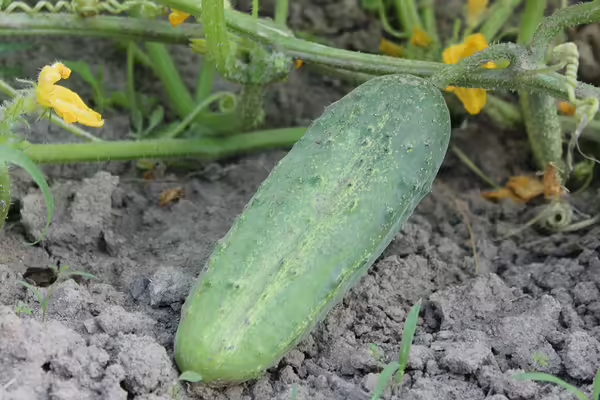
URBANA, Ill. — It’s the middle of summer, and you are looking for a new home project. Did you know it is not too late to plant some vegetable plants? With proper care, many vegetables are easy to grow in a sunny location in your backyard or a container garden on a patio. Take the challenge and reap what you sow, as the number one reason for growing your own vegetables is the taste.
A popular, great-tasting homegrown vegetable is cucumbers. This warm-season vegetable produces an abundance of fruit when given proper care. The first crop can be planted after the danger of frost has passed and can also be planted in mid to late summer.
Tips for growing cucumbers
What does it take to have a great crop of cucumbers? Lots of water. Cucumber plants have shallow roots and require ample soil moisture at all stages of growth. Adequate moisture is most critical when fruit begins to set and mature.
Cucumber plants need plenty of space in the garden. Rows should be 5 to 6 feet apart. In small gardens, cucumber plants can be trained on a trellis or a fence. Also, if space is limited, look for bush varieties that can be grown in containers.
Cucumbers need warm soil for germination and proper plant growth. Fertile soils will produce the best yields. Incorporate compost or well-rotted manure before planting. Remember to side-dress with nitrogen fertilizer when the plants begin to vine.
A cucumber is of the best quality when it is uniformly green, firm, and crisp. Harvest the cucumbers before the seeds fully develop. The best size depends on the use and type of cucumber. Pick slicing types when they are 6 to 8 inches long and pickling cucumbers when they are 3 to 4 inches long. Be diligent and inspect plants for fruits every day. Be sure to remove all mature cucumbers from a plant, as over-mature cucumbers left on the vine will halt the growth of new cucumbers. Refrigerate fruits after harvesting.
Some years the cucumbers have a bitter taste. What causes this bitterness? Most cucumber plants contain bitter compounds called cucurbitacins B and C, which can be present in the foliage and sometimes spread to the fruit. Bitterness tends to be a result of stress, such as lack of moisture, high temperatures, wide temperature swings, or poor plant nutrition. To try to combat the bitter taste, water plants during dry periods and add a layer of organic mulch to help to conserve soil moisture. Some bitterness can be removed by cutting off the stem end and removing the skin. Cucumber cultivars differ in their tendency to be bitter, so be sure to select bitter-free cultivars.
Enjoying cucumbers
While my family enjoys sliced cucumbers with a little salt, cucumbers add a crisp snap to salads and sandwiches. Cucumbers are mostly water having minimal nutritional value. If possible, leave the green peeling on as it contains a small amount of beta-carotene, which is where the most nutritional value is found.
To preserve your harvest, the only practical way for cucumbers is pickling. University of Illinois Extension provides basic guidelines for pickling, answers commonly asked questions, and recipes at extension.illinois.edu/food/pickling-foods.
For more information about growing and harvesting cucumbers, visit University of Illinois Extension, Vegetable Gardening, Cucumbers, extension.illinois.edu/gardening/cucumber.
WRITER: Jennifer Fishburn is a horticulture educator with University of Illinois Extension, serving Logan, Menard, and Sangamon counties. Gardeners Corner is a quarterly newsletter from gardening experts around the state. Each issue highlights best practices that will make your houseplants, landscape, or garden shine in any season. Join the Gardener’s Corner email list at go.illinois.edu/GCsubscribe for direct access to timely tips.
PHOTO ACCESS: The photo in this article is available to download for media use. Photo by Jennifer Fishburn.
Illinois Extension leads public outreach for University of Illinois by translating research into action plans that allow Illinois families, businesses, and community leaders to solve problems, make informed decisions, and adapt to changes and opportunities. Illinois Extension is part of the University of Illinois Urbana-Champaign College of Agricultural, Consumer and Environmental Sciences.